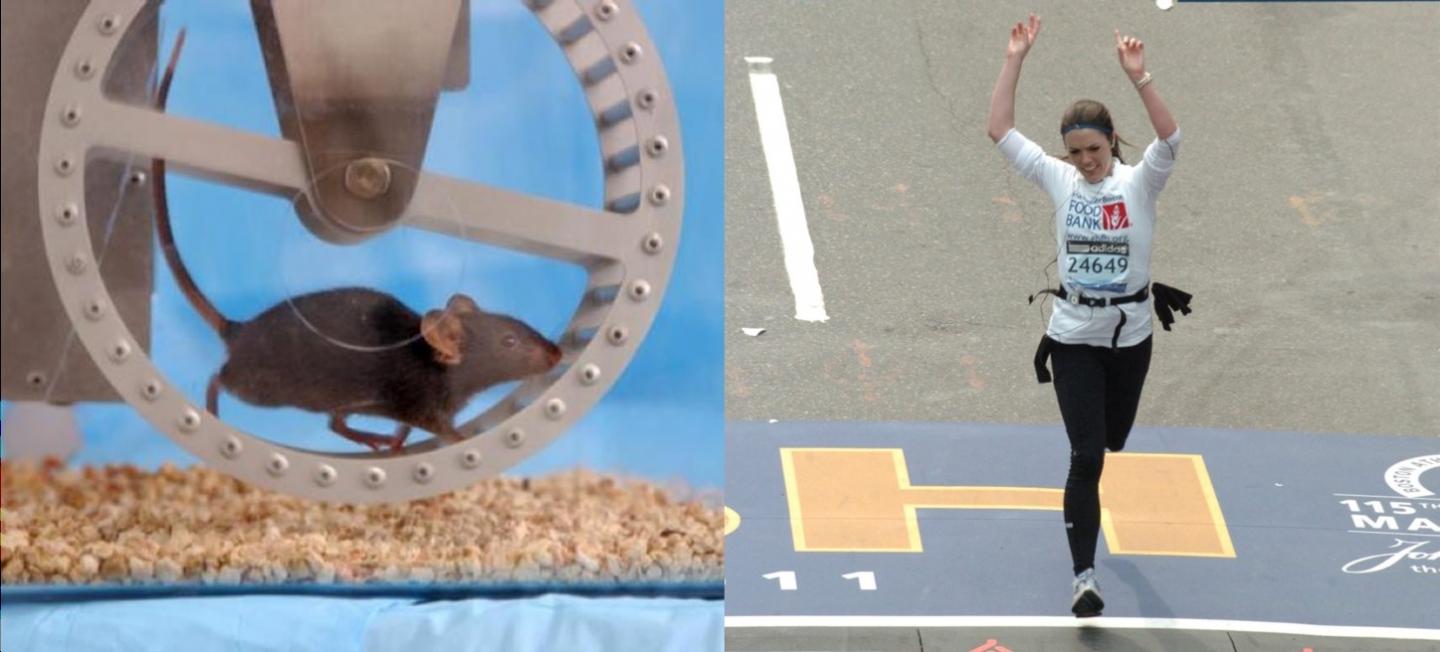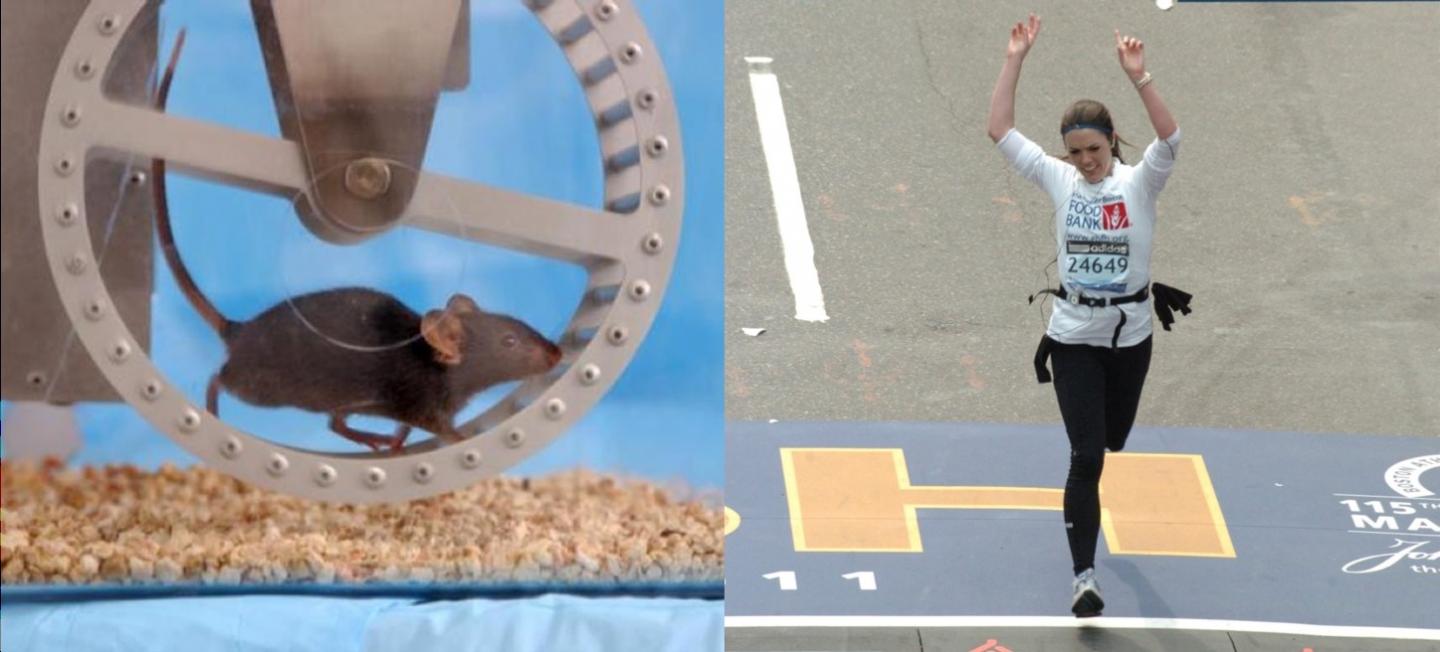
Credit: Henriette van Praag (photo on left); MarathonFoto (photo on right).
Amsterdam, NL, June 12, 2017 -In a new review of the effects of acute exercise published in Brain Plasticity, researchers not only summarize the behavioral and cognitive effects of a single bout of exercise, but also summarize data from a large number of neurophysiological and neurochemical studies in both humans and animals showing the wide range of brain changes that result from a single session of physical exercise (i.e., acute exercise).
There is currently enormous interest in the beneficial effects of aerobic exercise on a wide range of brain functions including mood, memory, attention, motor/reaction times, and even creativity. Understanding the immediate effects of a single bout of exercise is the first step to understanding how the positive effects of exercise may accrue over time to cause long-lasting changes in select brain circuits.
According to principal investigator Wendy A. Suzuki, PhD, Professor of Neural Science and Psychology in the Center for Neural Science, New York University, "Exercise interventions are currently being used to help address everything from cognitive impairments in normal aging, minimal cognitive impairment (MCI), and Alzheimer's disease to motor deficits in Parkinson's disease and mood states in depression. Our review highlights the neural mechanisms and pathways by which exercise might produce these clinically relevant effects."
The investigators summarized a large and growing body of research examining the changes that occur at the cognitive/behavioral, neurophysiological, and neurochemical levels after a single bout of physical exercise in both humans and animals. They reviewed brain imaging and electrophysiological studies, including electroencephalography (EEG), functional magnetic resonance imaging (fMRI), functional near-infrared spectroscopy (fNIRS), and transcranial magnetic stimulation (TMS). They then turned to neurochemical studies, including lactate, glutamate and glutamine metabolism, effects on the hypothalamic-pituitary-adrenal (HPA) axis through cortisol secretion, and neurotrophins such as brain-derived neurotrophic factor (BDNF), insulin-like growth factor 1 (IGF-1), and vascular endothelial growth factor (VEGF). Neurotransmitter studies of monoamines (dopamine, serotonin, epinephrine and norepinephrine), acetylcholine, glutamate and gamma-aminobutyric acid (GABA) were reviewed, as well as neuromodulators such as endogenous opioids and endocannabinoids.
This extensive review resulted in three main observations. First, the most consistent behavioral effects of acute exercise are improved executive function, enhanced mood, and decreased stress levels. Second, neurophysiological and neurochemical changes that have been reported after acute exercise show that widespread brain areas and brain systems are activated. Third, one of the biggest open questions in this area is the relationship between the central neurochemical changes following acute exercise, that have mainly been described in rodents, and the behavioral changes seen after acute exercise reported in humans. Bridging this gap will be an important area of future study.
Co-author Julia C. Basso, PhD, post-doctoral research fellow, Center for Neural Science at New York University, commented, "The studies presented in this review clearly demonstrate that acute exercise has profound effects on brain chemistry and physiology, which has important implications for cognitive enhancements in healthy populations and symptom remediation in clinical populations."
###
Media Contact
Diana Murray
[email protected]
718-640-5678
@IOSPress_STM
http://www.iospress.com
Related Journal Article
http://dx.doi.org/10.3233/BPL-160040
############
Story Source: Materials provided by Scienmag





